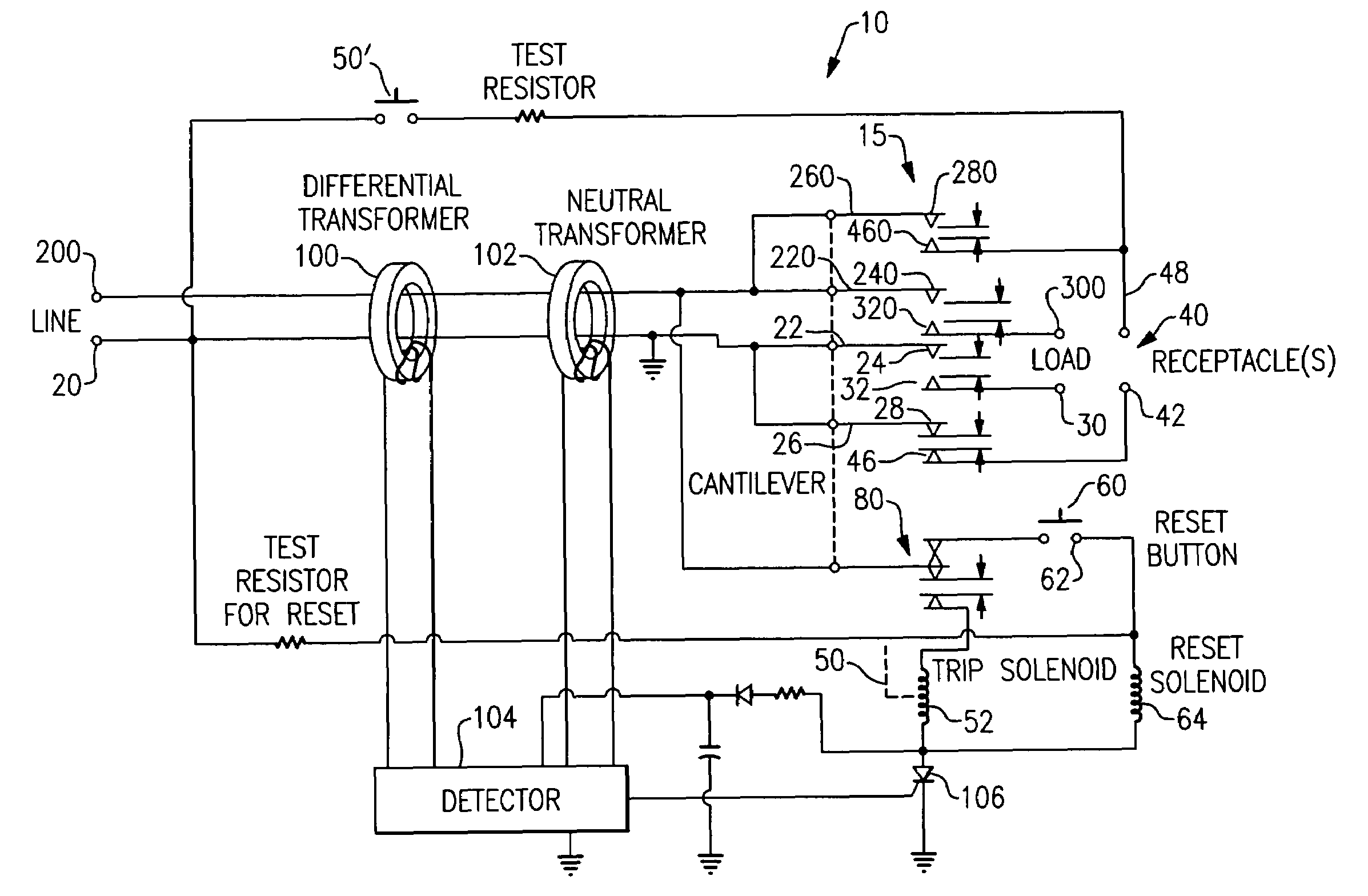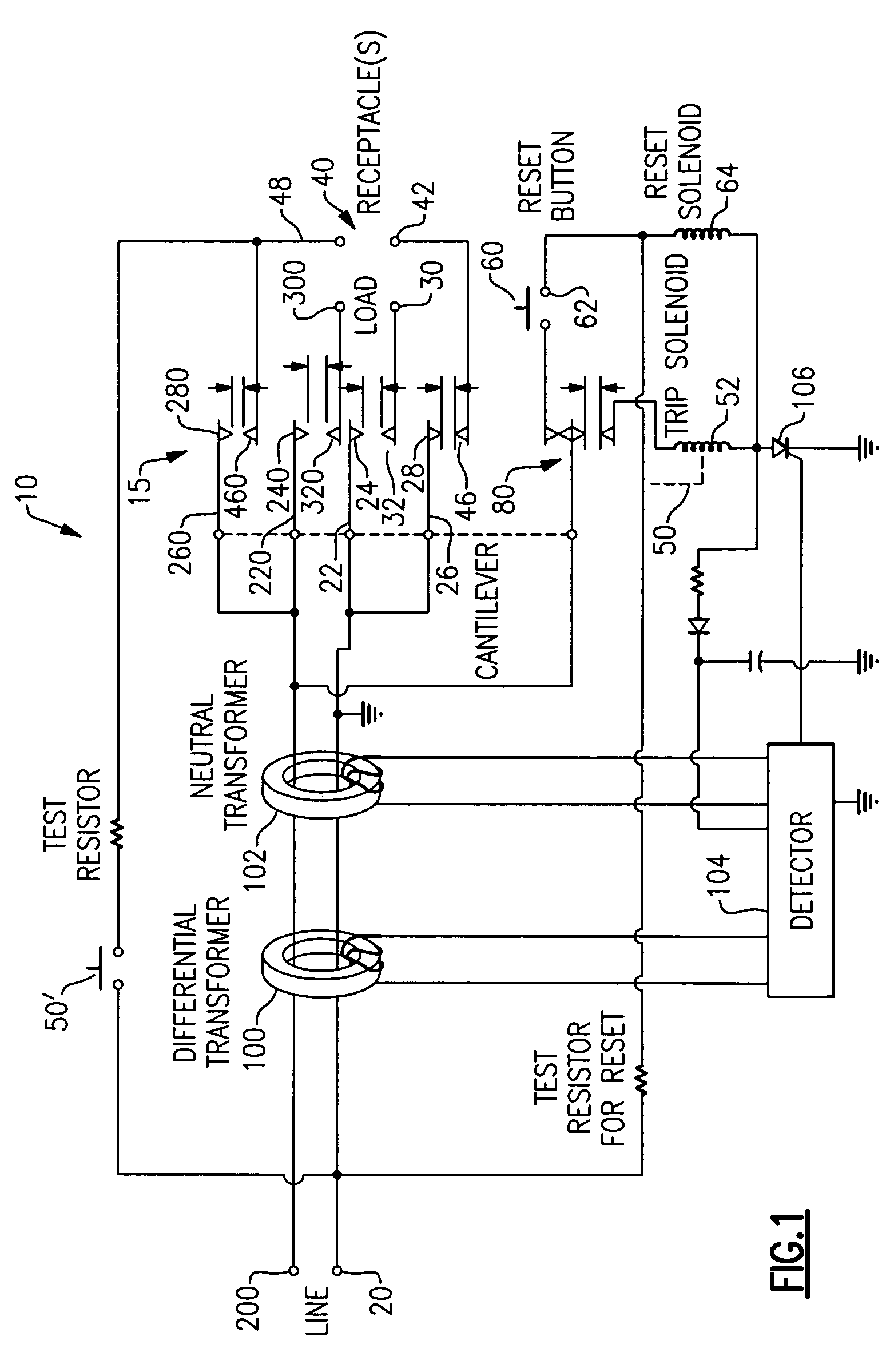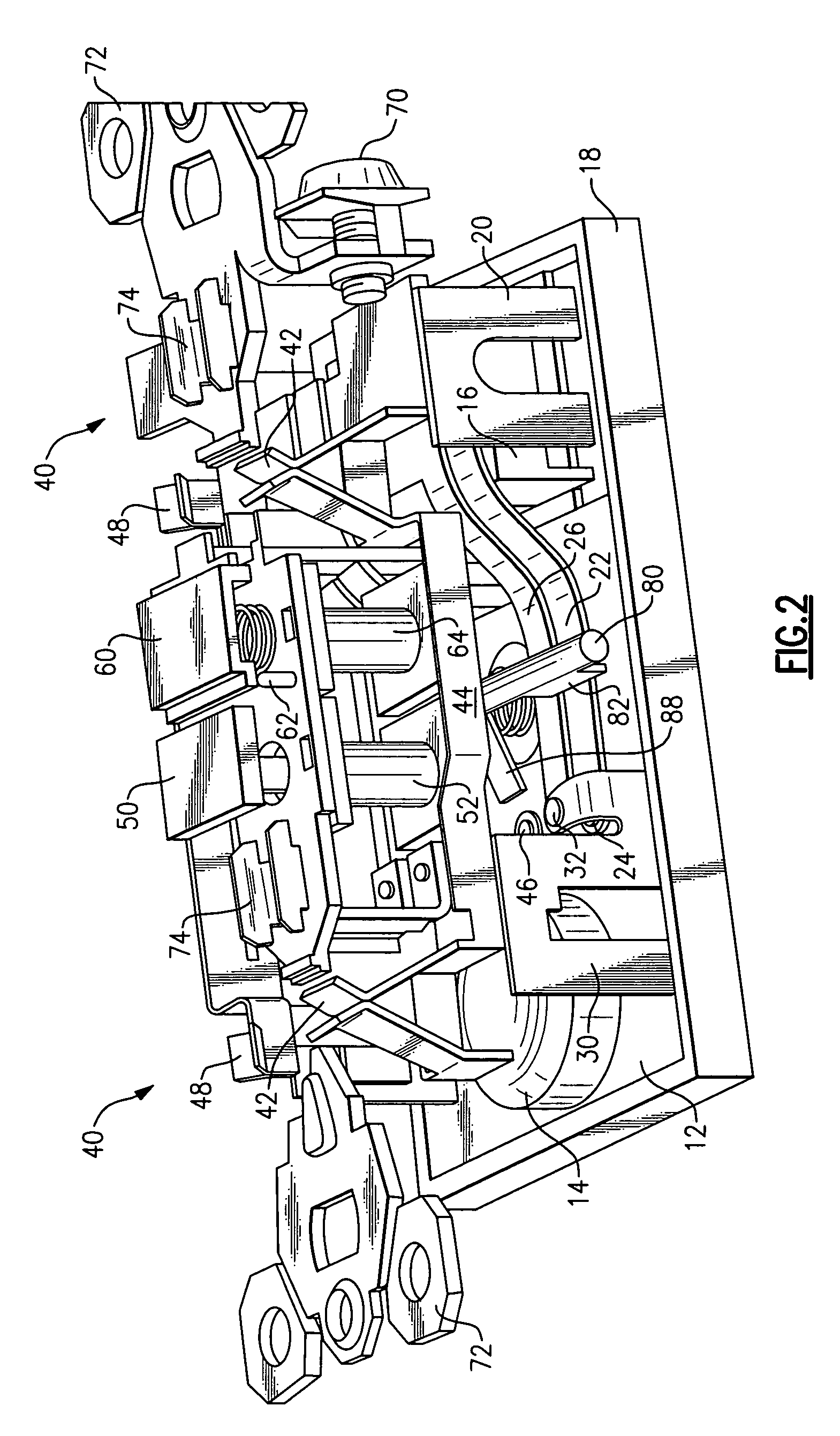Protection device with a sandwiched cantilever breaker mechanism
a protection device and cantilever technology, applied in the direction of earth fault current operation of the protective switch, emergency protective arrangement for limiting excess voltage/current, switch details, etc., can solve the problems of low power arc between the two conductors, arc fault, ground faul
- Summary
- Abstract
- Description
- Claims
- Application Information
AI Technical Summary
Benefits of technology
Problems solved by technology
Method used
Image
Examples
first embodiment
[0051]As embodied herein, and depicted in FIG. 1, a block diagram of an electrical wiring device 10 in accordance with the present invention is disclosed. While FIG. 1 includes a GFCI, the present invention is equally applicably to AFCIs and / or other protective devices. The wiring device 10 includes a tripping mechanism that includes ground fault sensor 100 and grounded neutral sensor 102 coupled to detector 104. Detector 104 is coupled to silicon controlled rectifier (SCR) 106. SCR 106 is turned on in response to a detection signal from detector 104. SCR 106, in turn, signals trip solenoid 52 to actuate a pivotal latch mechanism 80 to open the contacts in contact assembly 15.
[0052]With regard to contact assembly 15, neutral line terminal 20 is connected to cantilever member 22 and cantilever member 26. Cantilevers 22 and 26 are coupled to latch mechanism 80. Cantilever member 22 includes a moveable contact 24. In the reset position, moveable contact 24 is configured to mate with st...
second embodiment
[0076]As embodied herein and depicted in FIG. 8, a block diagram of an electrical wiring device 10 in accordance with the present invention is disclosed. Wiring device 10 is depicted as a GFCI. However, those skilled in the art will recognize that device 10 may be configured as an AFCI or another protective device. In this embodiment, a tri-contact design is employed. This design is also a four-pole design that is configured to deny power to the receptacles when the device is miswired and in a tripped state. Line neutral 20 is coupled to fixed neutral contact 500. Receptacle neutral contact 42 is coupled to fixed neutral contact 501. Neutral feed through terminal 30 is coupled to fixed load neutral contact 502. Each of the fixed contacts 500, 501 and 502 is paired with a moveable contact 505 disposed on tri-contact mechanism 506. On the “hot side,” each of the fixed contacts 508, 510 and 512 is paired with a moveable contact 514 disposed on tri-contact mechanism 516. The wiring devi...
fourth embodiment
[0107]FIG. 22 is a perspective view of an electrical wiring device in accordance with the present invention. In this embodiment the cantilevers may be oriented in any angular relationship one to the other, for example, at right angles as depicted in the Figure. As shown, line cantilever 816 is L-shaped to accommodate components disposed within device 10. Load cantilever 814 is similar to the cantilever structures previously shown. Thos skilled in the art will recognize that the arrangement may be reversed, with the load cantilever being L-shaped.
[0108]FIG. 23 is a schematic of the electrical wiring device depicted in FIG. 13. However, the schematic of FIG. 19 is applicable to all of the embodiments disclosed herein. The protective device of the present invention is configured to sense and detect fault conditions that may occur in the electrical distribution system, as well as simulated fault conditions, that are either manually or automatically generated. Fault conditions may includ...
PUM
 Login to View More
Login to View More Abstract
Description
Claims
Application Information
 Login to View More
Login to View More - R&D
- Intellectual Property
- Life Sciences
- Materials
- Tech Scout
- Unparalleled Data Quality
- Higher Quality Content
- 60% Fewer Hallucinations
Browse by: Latest US Patents, China's latest patents, Technical Efficacy Thesaurus, Application Domain, Technology Topic, Popular Technical Reports.
© 2025 PatSnap. All rights reserved.Legal|Privacy policy|Modern Slavery Act Transparency Statement|Sitemap|About US| Contact US: help@patsnap.com



